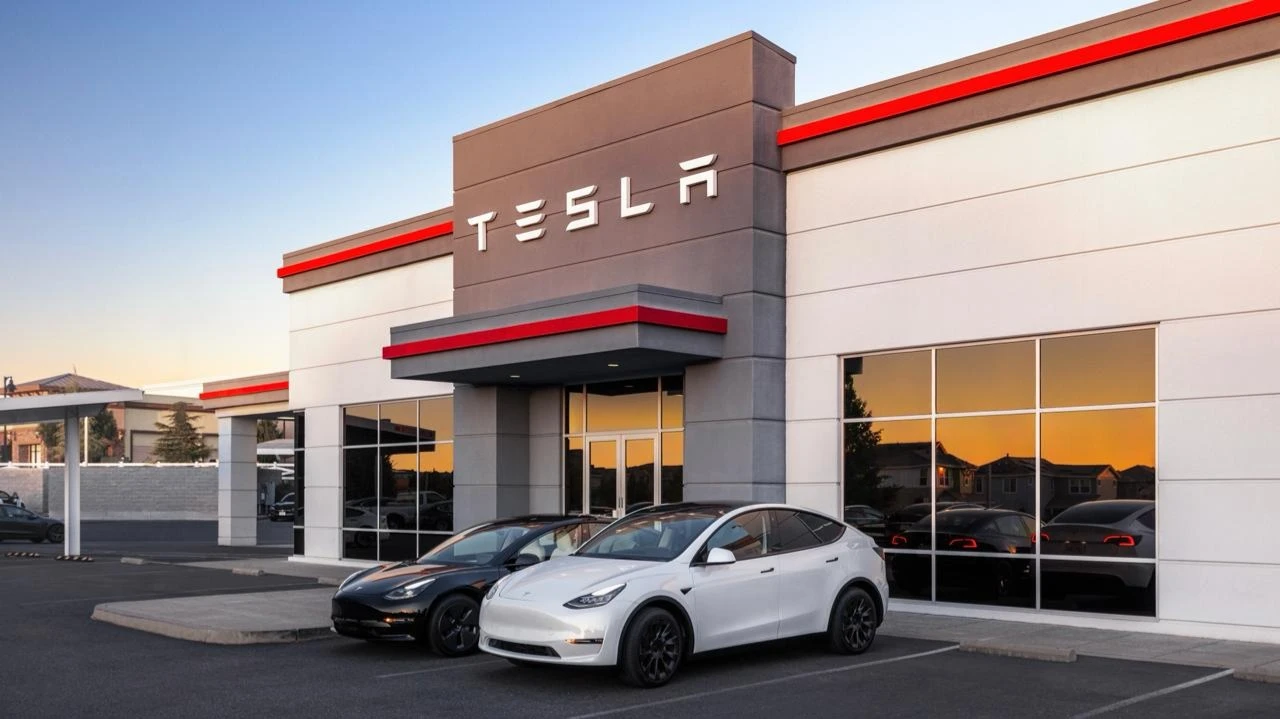Tesla is among hedge fund favorites for the first time in three years. Who else is in the lead?
Tesla's market value has fallen more than 20% since the beginning of the year

Tesla has returned to the list of favorite stocks for hedge funds for the first time in three years, despite weak performance since the beginning of the year, Goldman Sachs analysis showed. The investment bank compiled a list of "VIP-shares", which were most often found in the portfolios of hedge funds in the past quarter. The top ten included tech giants such as Amazon and Microsoft, as well as, for example, Mastercard. This list outperformed the S&P 500 in terms of returns.
Details
Tesla, whose 2025 stock has been one of the worst performers in the "Magnificent Seven" since the beginning of the year, returned to the ranks of favorite securities with hedge funds last quarter for the first time in three years, MarketWatch reports. That's according to an analysis by Goldman Sachs: it examined reports from 981 hedge funds with $3.8 trillion under management on Form 13F filed with the U.S. Securities and Exchange Commission (SEC), CNBC adds.
Based on this data, Goldman compiled a list of "VIP securities" that are most often included in the top 10 largest positions in hedge fund portfolios. Tesla took 30th place in the list: the company's shares were among the top ten positions of 17 funds. For example, the music streaming service Spotify and hard disk drive manufacturer Western Digital have the same result.
Hedge fund favorites are outperforming the broad market this year: a Goldman-compiled list of VIP securities, also available as ETFs, has returned 15% versus 11% for the S&P 500 index and 7% for its equal-weighted version, MarketWatch notes. The list has outperformed the S&P 500 in 59% of quarters since 2001, Goldman calculates.
Who was favored by hedge funds
The e-commerce giant Amazon topped Goldman's "VIP list": it is in the top 10 positions of 167 funds at once. It is followed by software developer and cloud provider Microsoft (127 funds). The third position is occupied by Meta Platforms, the owner of social networks Instagram and Facebook (111 funds).
Graphics processor maker Nvidia (98) and Google's holding company Alphabet (66) are also in the top five. The top 10 also includes Taiwan Semiconductor Manufacturing (TSMC), a contract manufacturer of microchips, semiconductor solutions provider Broadcom, Apple, Capital One Financial Corporation, and Mastercard, an international payment system operator, rounding out the top 10.
Shares of UnitedHealth, the health-care company that Warren Buffett's Berkshire Hathaway bought, found themselves in a unique situation: they were both on the list of the most frequent new purchases and on the list of securities that hedge funds were getting rid of, MarketWatch noted.
What hedge funds were guided by in their investments
The bet of hedge funds on the technology sector is largely due to the fact that the share of this sector in their portfolios is still much smaller than, for example, in the S&P 500 index - the gap is almost 15 p. p., writes MarketWatch. Such conclusions were presented by the Swiss investment company Pictet, which analyzed the same reports 13F.
"The increase in the share of technology stocks in hedge fund portfolios is due more to the expansion of their weight in the index than to a conscious decision by funds to increase their investments," the firm concluded (quoted by MarketWatch).
In addition, the second quarter was more a period of holding positions and returning to old favorites rather than looking for new opportunities, Bruno Schneller, managing director at Erlen Capital Management, said in a MarketWatch statement.
"While the Magnificent Seven still hold key positions in portfolios, this is more a reflection of a preference for liquidity than a bet on fundamentals," he emphasized. - 'We are in a market driven by inertia, with a narrow range of leaders and where it is more important to pay attention to liquidity, diversify income sources and maintain a reserve in case of major disruptions than to chase index growth. Simply put: index mechanics are largely responsible for buying, and real confidence in bets is still rare."
This article was AI-translated and verified by a human editor
